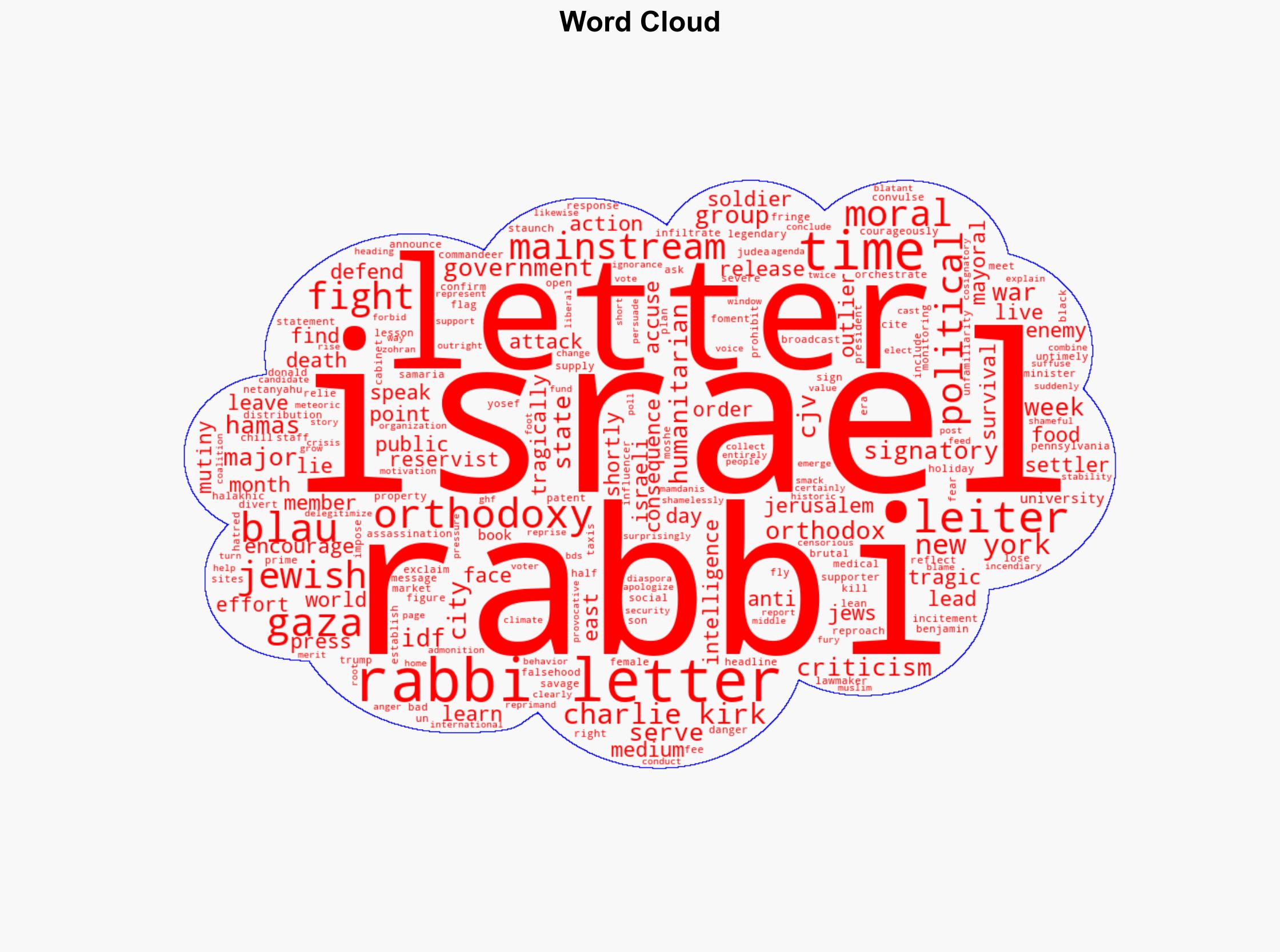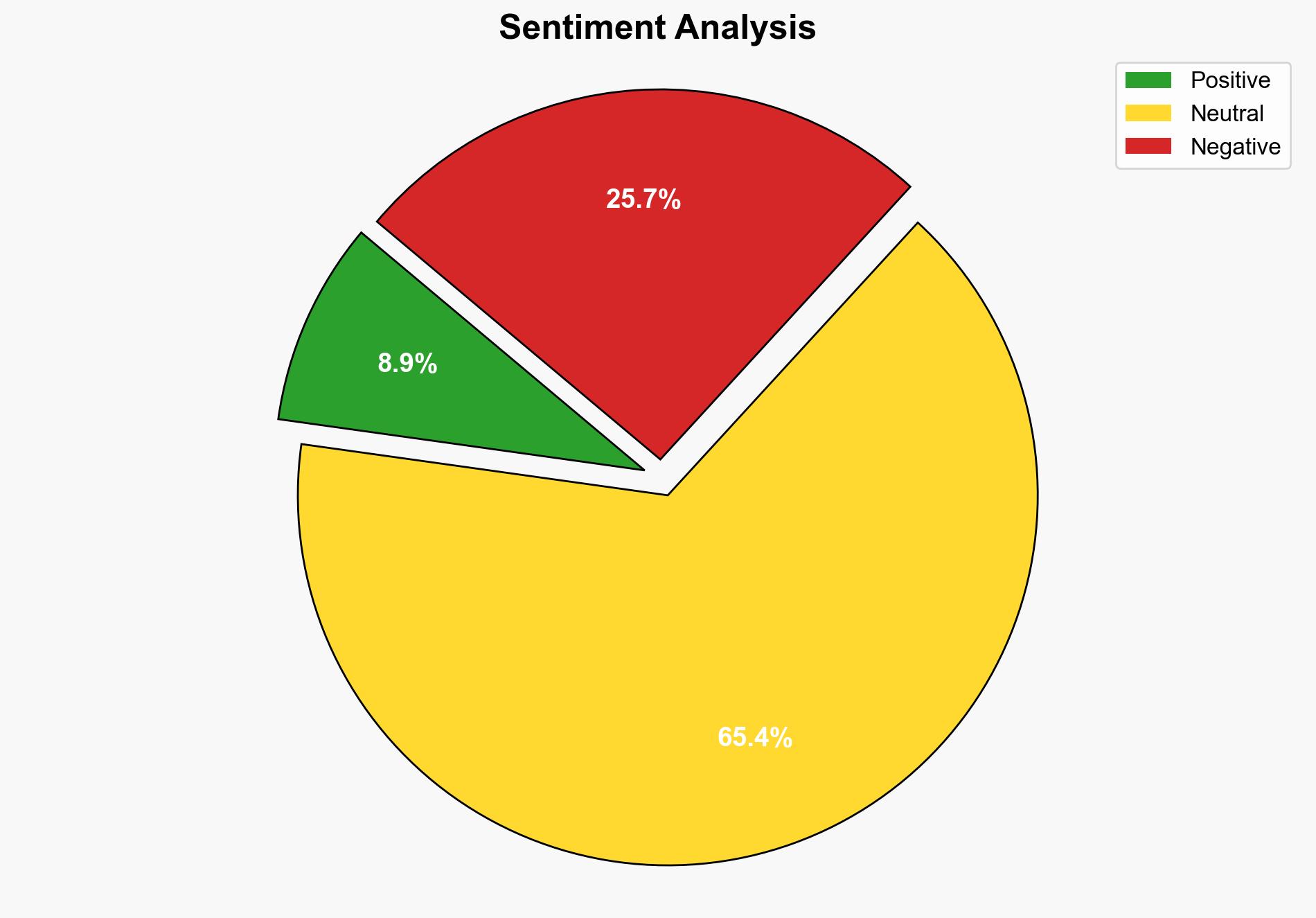I join Israel’s US Ambassador Yechiel Leiter’s request for one – Israelnationalnews.com
Published on: 2025-09-14
Intelligence Report: I join Israel’s US Ambassador Yechiel Leiter’s request for one – Israelnationalnews.com
1. BLUF (Bottom Line Up Front)
The most supported hypothesis suggests that the letter signed by Rabbi Yosef Blau and others is part of a broader political effort to influence public opinion against Israel, potentially impacting its international standing and internal cohesion. Confidence level is moderate due to the complexity of the political landscape and the presence of conflicting narratives. Recommended action includes diplomatic engagement to clarify Israel’s position and counteract misinformation.
2. Competing Hypotheses
1. **Hypothesis A:** The letter signed by Rabbi Yosef Blau and others is a genuine moral critique of Israel’s actions, reflecting a growing internal dissent within the Jewish community regarding Israel’s policies in Gaza and the broader region.
2. **Hypothesis B:** The letter is strategically orchestrated to align with broader political agendas, aiming to delegitimize Israel on the international stage and influence electoral outcomes in regions with significant Jewish populations, such as New York City.
Using the Analysis of Competing Hypotheses (ACH) technique, Hypothesis B is better supported due to the timing of the letter’s publication, its rapid dissemination in major media outlets, and its alignment with rising political figures critical of Israel.
3. Key Assumptions and Red Flags
– **Assumptions:** Hypothesis A assumes the signatories are primarily motivated by ethical concerns rather than political agendas. Hypothesis B assumes a coordinated effort exists to leverage the letter for political gain.
– **Red Flags:** The rapid media coverage and political context suggest potential manipulation. The lack of direct evidence linking the letter to specific political campaigns is a blind spot.
– **Cognitive Bias:** Confirmation bias may affect interpretations, with stakeholders likely to view the letter through pre-existing beliefs about Israel’s policies.
4. Implications and Strategic Risks
– **Geopolitical:** The letter could exacerbate tensions between Israel and diaspora communities, potentially influencing U.S. foreign policy.
– **Psychological:** The narrative may fuel anti-Israel sentiment, impacting public opinion and leading to increased support for movements like BDS.
– **Escalation Scenarios:** If perceived as a significant threat, Israel may intensify diplomatic efforts or take defensive measures, potentially leading to further polarization.
5. Recommendations and Outlook
- Engage in proactive diplomatic outreach to clarify Israel’s policies and counter misinformation.
- Monitor media narratives and political developments in key regions to anticipate shifts in public opinion.
- Scenario Projections:
- Best Case: Successful diplomatic efforts mitigate negative impacts, preserving Israel’s international standing.
- Worst Case: The narrative gains traction, leading to increased isolation and economic repercussions.
- Most Likely: Continued polarization with periodic diplomatic challenges.
6. Key Individuals and Entities
– Yechiel Leiter
– Charlie Kirk
– Rabbi Yosef Blau
– Zohran Mamdani
7. Thematic Tags
national security threats, geopolitical strategy, media influence, diaspora relations




